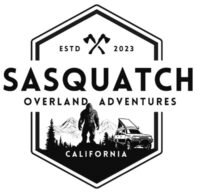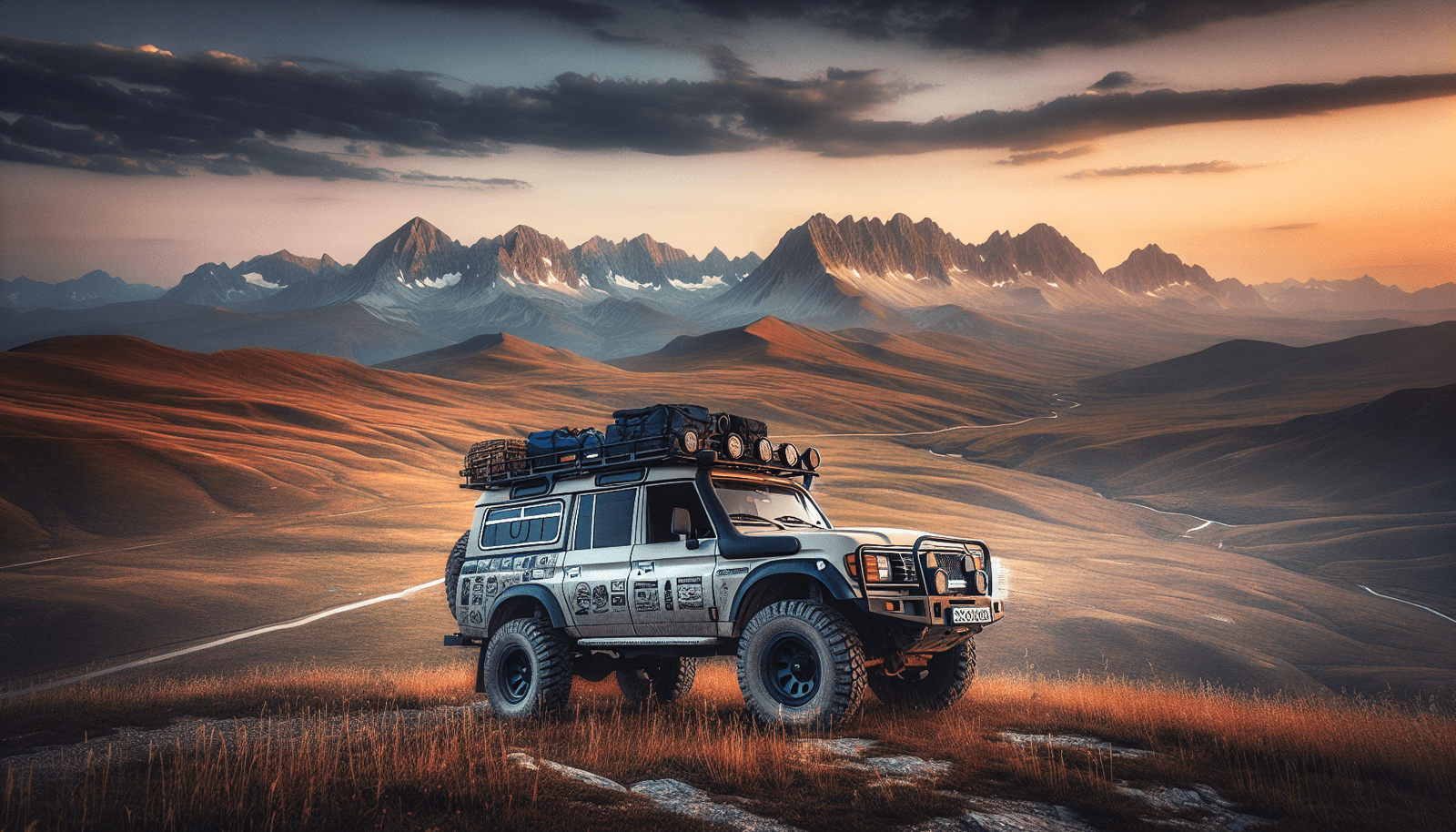What does it mean to truly experience overlanding?
Overlanding is more than just travel; it’s about discovering the world on your own terms, embracing the journey as much as the destination. It involves traversing remote areas, enjoying the scenic beauty of nature, and often engaging with local cultures along the way. For those of you who are eager to embark on an overland adventure, it’s essential to equip yourself with valuable information. This article will serve as a comprehensive guide, helping you understand the phenomenon of overlanding, planning your trips, and making the most of each journey.
Understanding Overlanding
What is Overlanding?
Overlanding refers to self-reliant adventure travel to remote destinations where the journey is the primary goal rather than simply reaching a specific endpoint. You might travel in a vehicle like an SUV, a camper, or even by motorcycle, all while aiming to experience terrain that might be hard to access otherwise. The essence of overlanding lies in the experience of the whole journey.
History of Overlanding
Overlanding has roots in exploration and adventure. From early explorers charting unknown lands to modern-day adventurers seeking off-the-beaten-path experiences, overlanding has evolved significantly. The concept gained popularity in the mid-20th century, when intrepid travelers began using four-wheel-drive vehicles to traverse distant lands. Recognizing a growing interest in these adventures, companies and organizations have developed resources, trails, and communities around overlanding.
Why Choose Overlanding?
For those of you who love the outdoors and adventure, overlanding can provide unique experiences you won’t find on traditional vacations. It presents opportunities for outdoor activities, cultural exchanges, and the chance to disconnect from daily life. You’ll find solitude in nature, discover hidden gems, and create unforgettable memories as you navigate through varying terrains and climates.
Planning Your Overland Adventure
Selecting Your Destination
Start by choosing a destination that excites you. Do you envision traveling through the deserts of Namibia, rolling hills of Scotland, or the mountains in Patagonia? Consider how far you want to go and what type of landscapes you’d like to encounter. Research the regions that cater to overlanders and familiarize yourself with any geographical and climatic challenges you may face.
Choosing the Right Vehicle
Your choice of vehicle can significantly impact your overlanding experience. Consider factors such as:
| Vehicle Type | Fuel Efficiency | Terrain Capability | Comfort & Space | Cost |
|---|---|---|---|---|
| SUV | Moderate | Good | Comfortable | Moderate |
| Van | Moderate | Moderate | Very Comfortable | High |
| Truck | Moderate | Excellent | Limited Space | Moderate |
| Motorcycle | Excellent | Limited | Minimal | Low |
| Camper Trailer | Low | Moderate | Very Comfortable | High |
Think about how you plan to camp, cook, and travel. Your vehicle should reflect your comfort needs and the terrain you plan to navigate.
Gather Essential Gear
Packing the right gear is crucial for a successful overlanding trip. Below are categories and examples of must-have equipment:
| Category | Essential Gear |
|---|---|
| Navigation | GPS device, maps |
| Shelter | Tent, roof-top tent, sleeping bag |
| Cooking Equipment | Portable stove, pots, utensils |
| Water & Supplies | Water filter, hydration packs |
| Safety Gear | First aid kit, fire extinguisher |
| Clothing | Weather-appropriate attire |
Ensure you have backup supplies and gear in case of emergencies. Planning and organization can make all the difference in a fluid adventure.
Preparing for Emergencies
Even with the best planning, emergencies can happen while overlanding. Prepare by:
- Learning basic first-aid skills.
- Sharing your itinerary with someone who isn’t traveling with you for safety reasons.
- Carrying a satellite phone or communication device for areas lacking cellular reception.
- Developing a contingency plan in case your route becomes impassable or you encounter other unforeseen issues.
On the Road: Overlanding Tips
Navigating Remote Areas
Navigation can be challenging in remote locations where GPS signals may be weak. Always carry physical maps as a backup and familiarize yourself with your route before you set off. Be aware of road conditions and potential obstacles like rivers or landslides, and adapt your plans accordingly.
Camp Set-Up and Maintenance
When it comes time to set up camp, choose a safe and flat area away from potential hazards like rocky overhangs or flood zones. Respect the environment by following the Leave No Trace principles, ensuring you leave the area as you found it. Store food securely to avoid attracting wildlife, and maintain your camp area for comfort and cleanliness.
Connecting with Nature and Local Culture
An essential aspect of overlanding is connecting with the communities you encounter. Take time to engage with locals, learn about their customs, and try traditional foods. This adds depth to your journey and enhances your understanding of the region. You might discover unique stories or experiences that you’ll carry with you long after your trip.
The Overlanding Community
Finding Fellow Overlanders
Connecting with fellow overlanders can enrich your experience. Online forums, social media groups, and local clubs are great ways to share knowledge and maintain a sense of community. Attending overlanding events and expos can also provide networking opportunities and insight into the latest gear and best practices.
Learning from Others
Every overlander has stories to tell. Whether they faced challenges, discovered hidden gems, or learned valuable lessons along the way, sharing experiences can enhance your journey. Taking advantage of these shared insights could be beneficial for both new and seasoned adventurers. You get to learn from their successes and mistakes!
Environmental Responsibility
Sustainable Overlanding Practices
As an overlander, it is vital to be environmentally responsible. Minimizing your impact on the lands you travel through is key to preserving the beauty of these natural landscapes for future enthusiasts. Some sustainable practices include:
- Sticking to established trails to avoid disturbing habitats.
- Using eco-friendly products and waste management systems.
- Conserving water and fuel.
- Supporting local economies instead of contributing to harmful practices.
The Role of Advocacy
Advocacy plays a crucial role in protecting natural spaces. Joining organizations focused on conservation and becoming involved in local initiatives can help preserve the landscapes you love while encouraging others to adopt sustainable practices.
Overlanding Resources
Online Forums and Communities
Forums such as Expedition Portal and Overland Bound are excellent resources for sharing tips, gear recommendations, and trip reports. You can pose questions, gain insights, or simply connect with like-minded individuals who share your passion for overlanding.
Books and Guides
There are many great resources that can guide your overlanding adventures, including books and travel guides. Seek out materials that provide insight into the terrain, cultures, and essential tips for navigating unfamiliar landscapes.
Apps for Overlanders
Several apps can be incredibly helpful while you’re on the road. Some popular choices include:
- Gaia GPS: For offline maps and navigation.
- iOverlander: A user-generated platform for finding campsites, amenities, and points of interest.
- AllTrails: Great for discovering hiking trails in various locations.
Keeping these tools at your fingertips will help you enhance your trip and make your travels more seamless.
Conclusion: Embrace Your Overlanding Journey
In final thoughts, overlanding is not just about reaching your destination; it’s a lifestyle that cherishes the adventure in every mile traveled. By engaging with nature, cultures, and fellow adventurers, you can create experiences that are deeply enriching. Whether you are planning your first trip or are an experienced overlander, the journey holds infinite possibilities. Each road traveled could lead you to moments that change your perspective, and that’s the beauty of exploration.
If you feel inspired to hit the road and embrace your journey, remember to plan wisely, respect your environment, and most importantly, enjoy every minute of your overlanding adventure. Happy travels!

